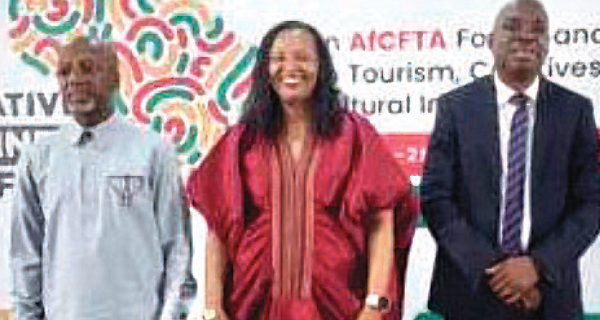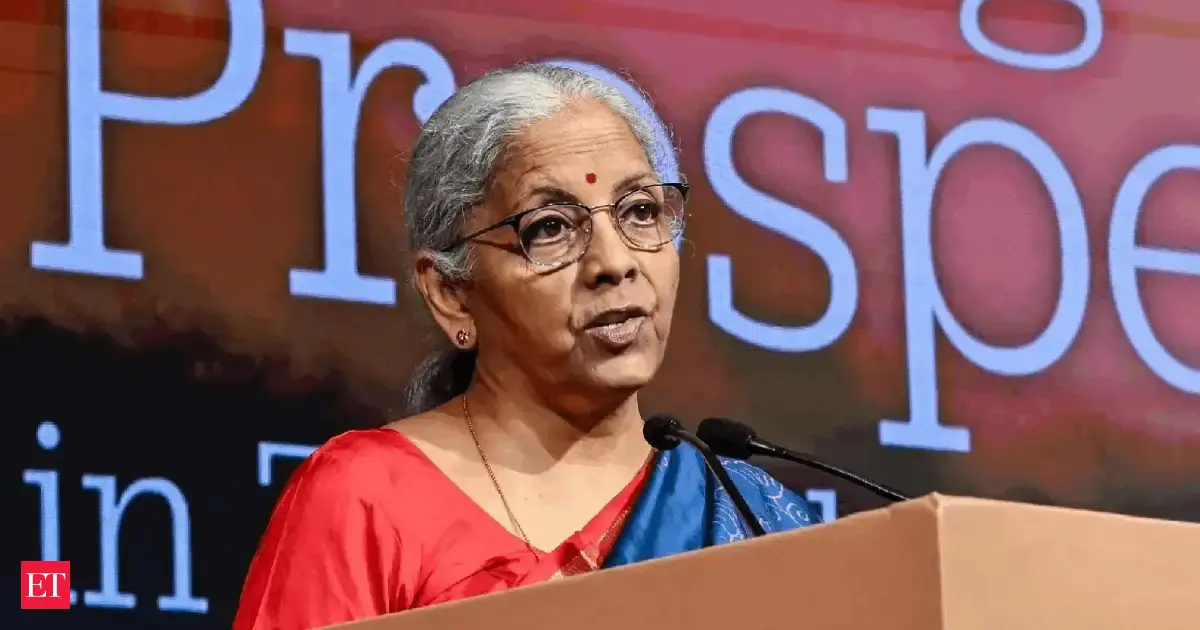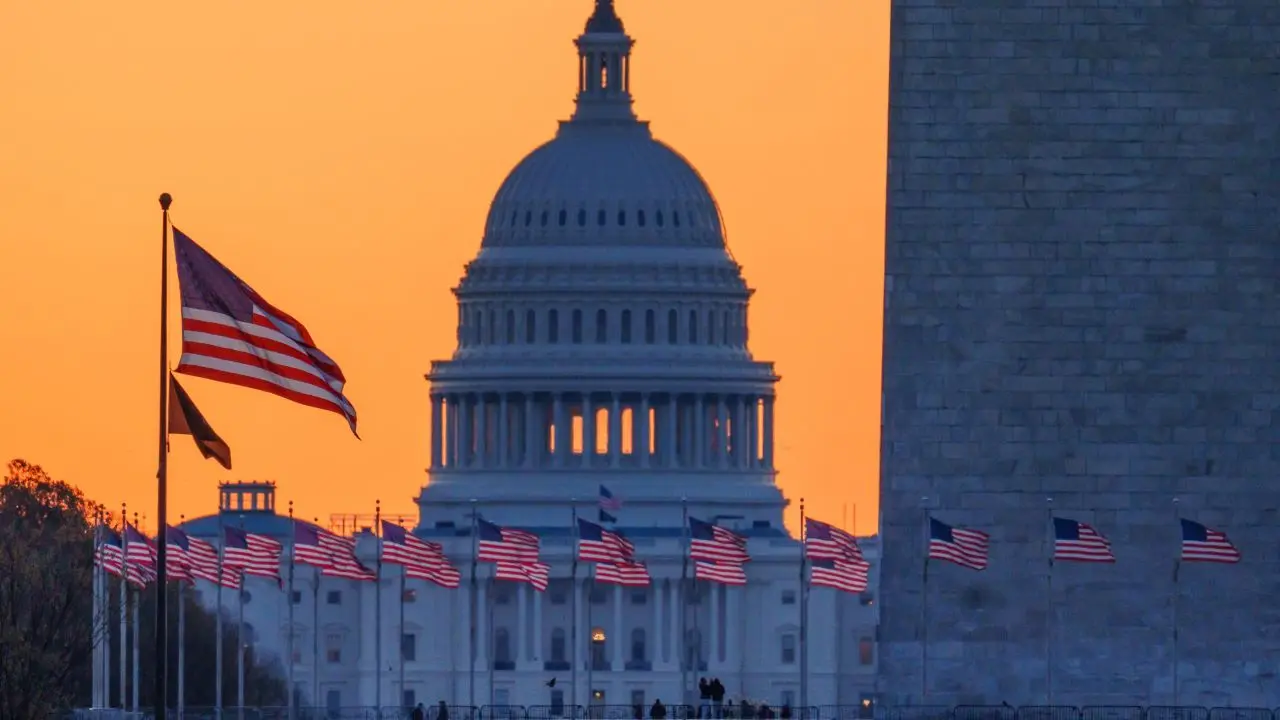Copyright thenationonlineng

There was a glow in the Lagos hall that morning—not just from the lights, but from expectation. It felt like a continent preparing to rediscover itself. Government officials, cultural innovators and creative entrepreneurs gathered for what seemed less an event and more a turning point: a move to transform Africa’s cultural energy into shared economic power. The message was clear—Africa’s creativity is capital, and that capital must circulate among Africans, reports Assistant Editor (Arts) OZOLUA UHAKHEME. The hall in Lagos carried a certain brightness that was not merely from the lights. It was the glow of anticipation—of ideas stirring, of possibilities within reach, of a continent ready to step into a future long imagined. On that Friday morning last week, government officials, industry players, cultural enthusiasts and creative entrepreneurs gathered with a shared sense of purpose to witness the unveiling of a vision to turn Africa’s cultural rhythm into economic momentum. It was the launch of the AfCFTA Forum and Festival on Tourism, Creatives and Cultural Industries—Creatives Connect Afrika—an initiative designed to rethink how Africa collaborates, trades and moves across borders within its creative and tourism sectors. Scheduled for November 24 to 26 in Accra, Ghana, and led by the African Continental Free Trade Area (AfCFTA) in partnership with the Black Star Experience (BSE) and Africa Tourism Partners (ATP), the festival promises more than panels and performances. It signals a shift—a quiet but significant return to self-belief. A future where Africans create for each other first, value each other’s markets, and shape narratives that travel outward on their own terms. For so long, the continent has had the vision, the flair, the cultural wealth and the unmistakable genius. What it lacked was the connective tissue—the system that allows Africans to exchange, collaborate and scale together. AfCFTA is now laying that bridge, using the one resource Africa has never been short of: creativity, culture and the stories that bind us. When Mrs. Emily Mburu-Ndoria, AfCFTA’s Director for Trade in Services, Investment, Intellectual Property Rights and Digital Trade, took the floor, she did not speak with the distant caution of bureaucracy. Her voice carried the clarity of someone who understands that culture is not a decorative flourish to economic development—it is its engine. She spoke of creativity not as an afterthought to policy or commerce, but as the ground on which futures are built. “Our work is not just about boosting GDP or increasing trade figures,” she said, her tone firm yet hopeful. “It is about empowering our youth, who form the majority of Africa’s population, to see creativity not only as a passion but also as a viable pathway to prosperity.” It was a message that landed in a room full of people who have long known the brilliance of Africa’s creative spirit, but also the weight of its constraints. The creative economy she described is not a niche space or a playground for the privileged. It is vast and alive—encompassing film, music, fashion, crafts, visual arts, games, cuisine, literature, festivals and cultural tourism. It is Nollywood setting global distribution standards. It is Afrobeats commanding festival headliners and Billboard charts. It is Ghanaian kente recast on international runways. It is Nairobi animators crafting worlds that resonate far beyond geographical borders. It is the unmistakable pulse of amapiano threading its way from South African studios to global dance floors. Yet, for all its global influence, Africa’s creative sector still struggles to translate cultural capital into economic power at home. The challenges are familiar: fragmented markets that make regional collaboration difficult, borders that restrict movement more than they encourage exchange, weak intellectual property frameworks, limited financing for creative businesses, and export environments that often require navigating systems designed for different priorities entirely. READ ALSO: Abba Kyari denies ownership of property linked to him Mburu-Ndoria did not shy away from these realities. She acknowledged them with the candour of someone intent on changing them. The Creatives Connect Afrika platform, she explained, seeks to harmonise policies that govern creative industries, expand integration across borders, support mobility, strengthen institutional capacity, and create space where African creatives can scale without needing to leave the continent to succeed. None of this is charity. None of it is symbolic. It is economic necessity—and cultural self-respect. For the first time in a long time, Africa is not asking to be recognised. It is asking to be connected. If Mrs. Mburu-Ndoria provided the grounding, it was Mr. Rex Omar, Coordinator of the Black Star Experience Secretariat and a respected voice in Ghana’s music scene, who sketched the contours of what the future could look like. He spoke with the ease of someone who has moved through both the frustrations and triumphs of Africa’s creative terrain, and who understands just how much potential has long been paused by borders, policies and fractured markets. The collaboration, he said, is not simply about staging another festival. It is about building a continental marketplace—one that exists both online and on the ground—where filmmakers, musicians, designers, animators, tour operators and cultural producers can find one another, work together and scale their visions without needing to leave the continent to succeed. In this marketplace, a Kenyan animator could secure Nigerian funding, a Senegalese designer could work directly with Ethiopian textile artisans, a Kigali filmmaker could access Johannesburg distribution networks, and a Cape Coast tour operator could curate travel experiences that stretch seamlessly into Zanzibar or Maputo. “It addresses both the supply and demand sides of Africa’s creative economy,” Omar said. “It equips, protects, connects and empowers our creatives to operate across borders—with confidence.” The upcoming event takes a practical approach to empowering Africa’s creative sector. Through masterclasses, investment clinics, networking platforms and training on intellectual property rights, the initiative will equip creatives not only to produce, but to profit—to export their work, negotiate fair licensing, build sustainable partnerships and scale their craft beyond local markets. For generations, Africa has inspired the world; its art, sound and stories have travelled farther than its people. Yet while global markets profited from African ingenuity, Africans themselves often remained on the margins of that wealth. Now, there is a real opportunity to change that pattern. Mr. Kwakye Donkor, CEO of Africa Tourism Partners, described the platform as one designed to amplify what is already working across the continent. Africa has never lacked brilliance, he noted. Its music, film, fashion and heritage industries have always been luminous. What has been lacking is coordinated access, mobility and structured integration. Nigeria stands prominently in this unfolding narrative. With Nollywood ranked among the world’s most prolific film industries and Afrobeats now a dominant global sound, Nigeria has become a cultural lighthouse—radiant, unstoppable and influential. But cultural dominance alone does not guarantee economic transformation. For Nigeria’s creative strength to translate into long-term prosperity, there must be systems in place: easier travel for creatives across African borders, harmonised regulations, financing pathways that understand the creative business cycle, and unified frameworks for digital trade and content distribution. The Creatives Connect Afrika platform aims to build exactly this kind of ecosystem by bringing together policymakers, financiers, artists, content aggregators, distributors, tourism developers and intellectual property specialists. What is taking shape is more than a festival; it is a strategic movement. A coordinated effort to build a continent where African talent circulates within African markets, where culture becomes a viable livelihood, and where young people recognise creativity not as escape, but as empowerment. For far too long, African creativity has been shaped by a gaze that looks outward. The imagination was encouraged to dream of London, Paris, Dubai, New York or Toronto before it ever considered its neighbours. Yet, Lagos and Accra are closer than either is to Europe. Nairobi and Kigali share not only sky but sensibility. Dakar and Bamako pulse to the same ancestral drumbeat. Kampala and Dar es Salaam breathe a rhythm that predates borders. The stones of Cape Coast speak the same memory that echoes in Salvador da Bahia across the Atlantic. The connections have always been there—geographic, historical, spiritual—only the systems to honour and sustain them were missing. Creatives Connect Afrika seeks to correct that. It is not merely a festival; it is a reawakening, a reclamation of confidence. It invites Africans to recognise each other, to trade with each other, to collaborate, distribute, perform, and scale within the continent before looking elsewhere. It asserts, without apology, that Africa does not need external validation to authenticate its creativity. The continent already holds its value. It simply needs the mechanisms to allow that value to move, to circulate, to strengthen, to enrich those who produce it. That sentiment was unmistakable at the Lagos launch. There was a feeling in the room—a buoyant optimism that was both grounded and ambitious. Conversations flowed beyond formal speeches; business cards changed hands quickly; ideas leaped from one table to another with the ease of shared purpose. It felt like the early pages of a story that Africa has long been waiting to write. If the initiative succeeds, it could reshape how African economies grow and how African identities are expressed. Tourism could become more rooted in heritage, music, cuisine and festival culture. Fashion and film could expand their continental value chains. The digital trade of music, streaming, gaming and storytelling could find its largest, most dedicated audience at home. Millions of jobs could emerge in cultural production, preservation, distribution and experience-based tourism. The creative economy would no longer be seen as a fringe sector—it would stand as central to Africa’s development model. The philosophy is simple: Africa’s creativity is capital. And capital must circulate to have power. As the journey moves toward Accra in November, one message continues to echo with growing clarity: Africa is telling its story again—not to please the world, but to recognize itself. And in doing so, the world will have no choice but to listen.



